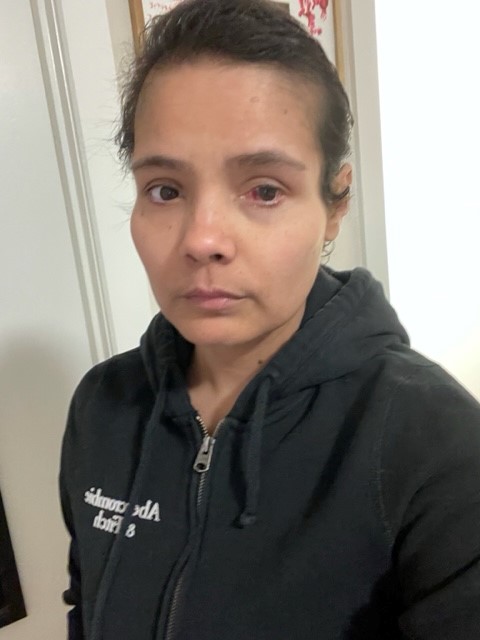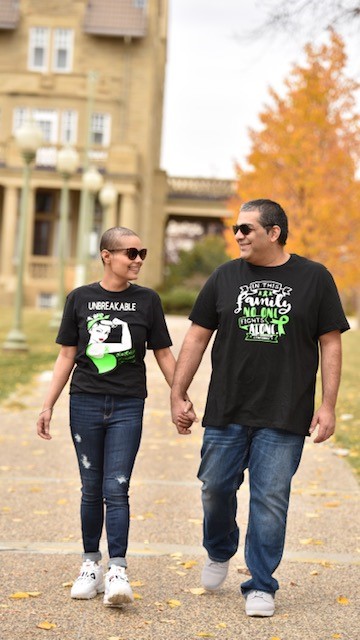The number of Canadians living with and surviving cancer has reached 1.5 million, according to new data that reveals that the number of people in Canada with cancer is increasing.

The data, released Tuesday by the Canadian Cancer Society (CCS), contains cancer prevalence figures looking back over the last 25 years — the first of its kind in Canada to provide this kind of long-term prevalence snapshot.
A decade ago, it was estimated that one million Canadians were living with the disease, but Canada’s aging and growing population as well as advances in medicine and research helping more people to be diagnosed and survive has resulted in higher prevalence of cancer in Canada, according to the report.
That is both good and bad news when it comes to cancer occurrences in Canada, says Dr. Janet Dancey, a medical oncologist and director of the Canadian Cancer Trials Group.
“The fact is that as we live longer and longer, the chances of having cancer appear to go up, despite our best efforts and despite our best understanding,” she said.
“We also have many effective treatments, and that is actually how this particular publication, with its information on prevalence, can actually help highlight how many people live well beyond their cancer diagnosis. And I think it’s actually a very hopeful message.”
The report was developed by the Canadian Cancer Statistics Advisory Committee in collaboration with CCS, Statistics Canada and the Public Health Agency of Canada.
Dancey says it will help provide an important look at trends in cancer occurrences over a long period of time that show how well the country is doing when it comes to preventing, detecting and treating this disease and how well people with cancer are doing over time.
For example, the report found that 60 per cent of the 1.5 million people living in Canada who have been diagnosed with cancer in the last 25 years were diagnosed between five and 25 years ago.

This means a high number of people are living long-term after a cancer diagnosis, says Jennifer Gillis, senior manager of surveillance for the Canadian Cancer Society.
“This really highlights not only the improvements in survival, but also cancer’s long-term toll on our health-care system and the need to advance research to improve prevention, but also quality of life for people who have been diagnosed with cancer.”

For Harjeet Kaur, the disease started as persistent fevers that wouldn’t go away.
It was the spring of 2019, and the then-32-year-old had only recently emigrated to Canada from India and was otherwise healthy and looking forward to building a life in a new country with her husband.

But after many weeks of fevers, Kaur knew something wasn’t right. She started experiencing extreme chills and unexplained swelling in different parts of her body and then blacked out one day in her bathroom.
It took numerous visits to her family physician and countless hours in hospital emergency rooms — where she was repeatedly told it was probably just a virus or infection that would run its course — until finally she was admitted to a hospital in Edmonton for testing.
Two months and many scopes and scans later, she finally got the diagnosis: Kaur had a very rare type of blood cancer that had already progressed to Stage 4. And she was told she needed to start chemotherapy immediately.
“Honestly, I never thought that it would be the word ‘big C.’ I thought it might be some kind of infection or something, but I never thought that it would be cancer, Stage 4,” she said.
Her husband, brother and mother were equally incredulous.
“We still could not get that thing in our mind that, OK, is it seriously cancer? Because until now we could not diagnose anything and now all of a sudden it’s Stage 4.”
The diagnosis was only the beginning of the nightmare Kaur was to endure.
A side effect of her treatment caused her to permanently lose sight in one eye, and she also developed an autoimmune disease, which complicated her treatment.

Eventually, she had to get a stem-cell transplant, which carries a significant risk of serious complications, including a 15 per cent chance she would not survive.
COVID-19 lockdowns further complicated her treatment and meant she had to isolate in the hospital alone for 32 days while undergoing treatments that were so painful, Kaur says she couldn’t speak.
“I was not sure if I would come back,” she said.
“The only thing which kept me going was my family and my friends and the strength that I input in myself after all this — that I need to get out of this. I need to go back to my family. I need to get up. I need to do this. But it took a lot from me.”
It has been a long road to recovery that Kaur says she is still on, but a recent scan showed no evidence of disease. However, she is still living with the aftermath of the disease and the treatments, including early menopause and her lost eyesight.

But she now wants to be a voice for other cancer patients and to let them know it’s important to advocate for themselves through their cancer journeys.
Tuesday’s cancer statistics report shows Kaur’s survival story is more common among the one in 24 Canadians now living with cancer. But it also highlights how the COVID-19 pandemic and Canada’s stretched health-care system is having significant impacts on cancer patients, which shows the need for more investments in health care in Canada, Gillis said.
Without more support, Canada’s health system will be under-resourced to keep up with the growing number of Canadians impacted by cancer, she said.
“That’s why the Canadian Cancer Society actually is advocating for all levels of government to work together to come and help create a health-care system that is resilient and can meet the evolving needs of people throughout their cancer experience,” Gillis said.
“There are many different ways that individuals go through their cancer experience. So, these results and the findings of this report can help us start to understand who may need these supportive services throughout their cancer journey.”


Comments